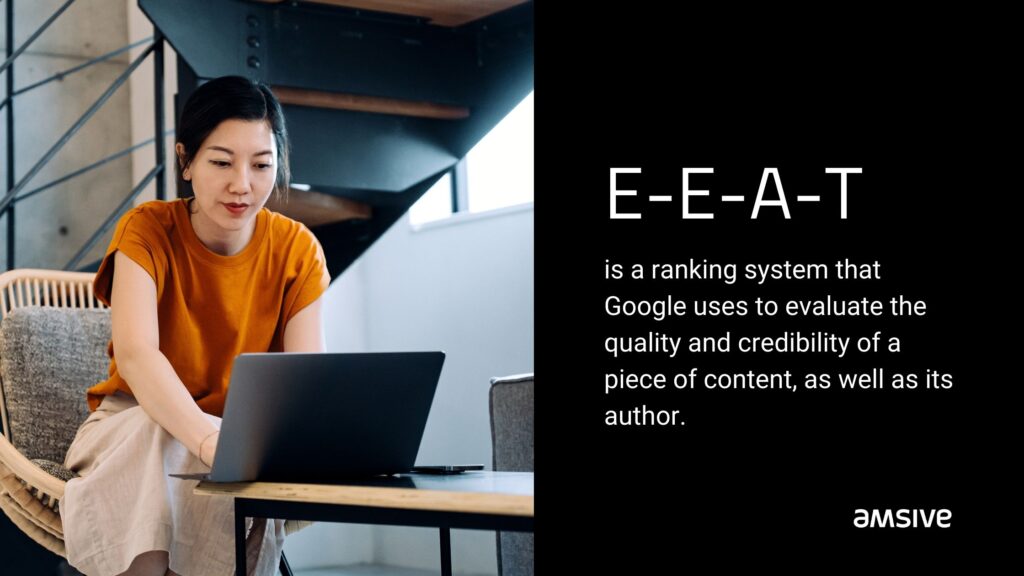In the digital landscape, it’s easy for people to claim authority in any topic they like. However, Google offers content creators the ability to build trust, visibility, and authority through authorship. When Google can credit content to a verified author, it improves the information’s credibility. People are also more likely to engage with content that comes from well-known and trusted sources. Established authorship can improve click-through rates and site interactions, boosting engagement for both the author and the content publisher.
Authorship can positively impact brand building. A consistent author profile helps to establish a recognizable, authoritative presence in search results by ensuring that your brand presents a unified message, and building audience trust. Learn how authorship can improve recognition, impact your credibility, create a stronger audience connection, and more.
Jump To:
How to establish authorship
First established in 2011, Google initially promoted the use of an authorship “markup”, which let authors link their content to their Google+ profiles. This was ultimately discontinued in 2014, shifting focus to other methods of author identification. As you develop your personal or brand content strategy, there are key actions that you can take to establish and improve your authorship.
Steps to take to establish authorship can include:
Author verification
While Google no longer requires that you link to your Google+ profile to establish authorship, it’s important to verify authorship in other ways. This can include linking to professional profiles (like LinkedIn), personal sites, or publishing platforms where an author is active. Where possible, use consistent language across profiles and bios.
Content quality
Google’s algorithms prioritize high-quality, well-researched, and well-written work. Authors should focus on creating valuable and accurate content that meets their reader’s needs and expectations.
E-E-A-T
Google’s algorithms seek out content that fulfills their requirements for Expertise, Experience, Authoritativeness, and Trustworthiness. These four factors are used to gauge the quality and credibility of a piece of content, as well as its creator. This can impact authorship and help ensure that authoritative content is accurate and reliable.
E-E-A-T can have a higher impact on different content categories, such as your money, your life (YMYL) content. This can include topics like financial matters, and health and wellness.
The role of E-E-A-T
E-E-A-T is a ranking system that Google uses to evaluate the quality and credibility of a piece of content, as well as its author. This analyzes content to assess its accuracy and reliability.
Experience
This refers to the firsthand knowledge and practical involvement that an author has with a subject. Showcasing genuine experience on a topic or in a field can help boost content credibility.
Expertise
This highlights your content-specific knowledge and qualifications. Google favors content written by people with a deep knowledge of their given subject.
Authoritativeness
This can apply to both the author, and the site that the content is hosted on. Authoritativeness explores the recognition and reputation of the author or site.
Trustworthiness
This helps assess how reliable and honest the content and author are considered. Content should be well-researched, fact-checked, and transparent about how it’s researched. Creating content with E-E-A-T in mind can help boost content visibility.

How authorship boosts visibility
When content is verified by an author, Google is more likely to prioritize it, improving the chance of your work standing out in search results. It can also positively impact clicks and engagement on a piece of content.
A well-defined author profile and creating a recognizable identity can also contribute to improved visibility. This can help you establish a strong presence in search results and on social media, where many users are more likely to engage with creators that they recognize.
Authorship can also benefit your SEO strategy through a strategic blend of targeted keywords and authoritative links. These links can also confer topical authority. For publishers, authors tend to cover stories on a small set of similar topics (science, health, politics, etc.) An author can build topical authority over time and that authority can be conferred to the pages the author on a website. Over time, the website builds its own authority. In this way, author bios are a key building block of site authority. By maintaining an active and credible online presence, authors can enhance their search engine rankings and attract larger audience recognition.
How authorship impacts recognition
True of both personal and brand identity, authorship can improve recognition by giving that entity credibility and authority. When content is associated with a verified author, it helps differentiate it from a competitor’s content, making it easier for audiences to identify that you are a trusted source across platforms.
Authorship also improves recognition by creating a clear and consistent association between a piece of content and its creator, which improves an author’s visibility and reputation. This recognition can build up over time as an author produces high-quality, unique content.
Stand out from your competitors
Authorship can help you distinguish your content from your competitors in several ways. These can include:
Develop a strong author brand
Creating a distinctive author profile that showcases your expertise can help improve recognition with your ideal audience. When possible, use consistent branding elements, such as a professional photo and a well-crafted bio, to build a recognizable identity.
Build authoritative links and citations
Include links to other reputable sources and citations in your content to enhance its credibility and authority. This not only boosts the content’s reliability but also associates your insights with trustworthy publications.
Promote your achievements
Share relevant accomplishments, including industry awards or certifications, in your bio and content. Highlighting these achievements can help reinforce your authority.

Set yourself apart
To fully leverage the benefits that authorship can provide, start by ensuring your author profiles are verified and optimized. Create detailed, accurate profiles on social media platforms, personal websites, and reputable publishing sites, and use consistent branding elements. This helps build trust with both Google and your audience, making your content more credible and easily recognizable.
Consistently creating and publishing well-researched, valuable, and relevant content will keep your audience engaged, and boost your credibility in your field.
Curious about how SERP visibility is shifting toward eCommerce sites and user-generated content? Check out what this can mean for your brand, or let’s talk about how to achieve more for your marketing—and your business.






